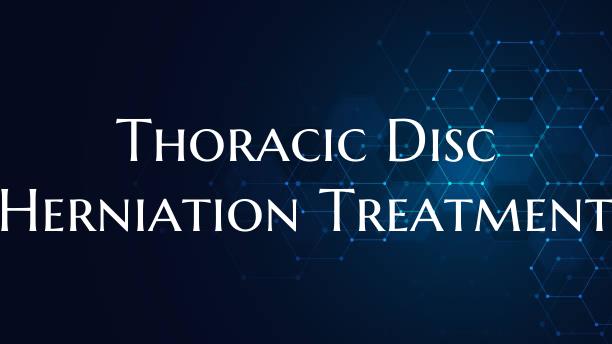
Thoracic Disc Herniation Treatment
Thoracic disc herniation is a condition that occurs when the soft cushioning discs between the vertebrae in the upper back (thoracic spine) bulge or rupture, leading to pressure on the spinal cord or nerves. It can cause pain, weakness, numbness, and tingling in the chest, back, or abdomen, and in severe cases, it can even cause difficulty walking or controlling bowel or bladder function.
Fortunately, there are several treatment options available to manage thoracic disc herniation and alleviate symptoms. Here are some effective approaches that healthcare providers may recommend:
1. Conservative Treatments: - Physical Therapy: A tailored physical therapy program can help strengthen the muscles supporting the spine, improve flexibility, and reduce pain. - Pain Management: Nonsteroidal anti-inflammatory drugs (NSAIDs), muscle relaxants, or nerve pain medications may be prescribed to manage pain and discomfort. - Steroid Injections: Corticosteroid injections around the affected disc can help reduce inflammation and alleviate symptoms.
2. Minimally Invasive Procedures: - Epidural Steroid Injections: These injections deliver anti-inflammatory medication directly to the affected area to reduce swelling and alleviate pain. - Percutaneous Discectomy: A minimally invasive procedure in which the herniated disc material is removed through a small incision.
3. Surgical Intervention: - Discectomy: In severe cases where conservative treatments have not provided relief, surgical removal of the herniated portion of the disc may be necessary to relieve pressure on the spinal cord or nerves. - Spinal Fusion: In some instances, spinal fusion surgery may be recommended to stabilize the spine after a discectomy.
4. Rehabilitation and Post-Surgical Care: - Physical Therapy: Rehabilitation exercises are crucial to strengthen the back muscles, improve flexibility, and aid in the recovery process after surgery. - Lifestyle Modifications: Maintaining a healthy weight, practicing good posture, and avoiding activities that strain the back can help prevent recurrence of thoracic disc herniation.
It is important for individuals with thoracic disc herniation to work closely with their healthcare providers to determine the most appropriate treatment plan based on the severity of their condition and individual needs. Early diagnosis and intervention can help manage symptoms effectively and improve quality of life for those affected by this condition.